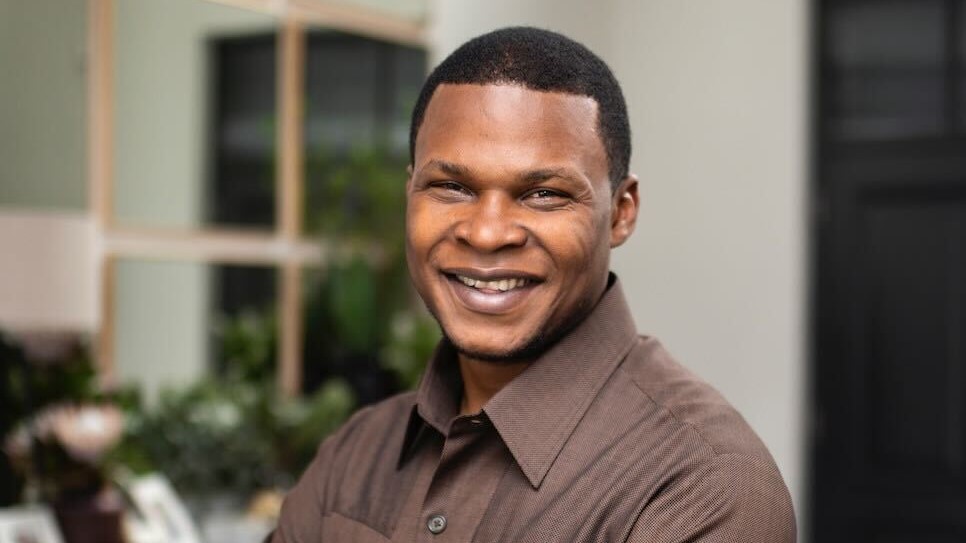Have you ever wondered how much easier travel has become, thanks to the digital innovations shaping our world? Exploring new destinations used to mean…
NJ Ayuk on How the Civil Rights Movements Can Influence Energy Policy

Sponsored by Easylink Studio
As the chairman of the Africa Energy Chamber, NJ Ayuk works to piece together large-scale deals worth trillions of dollars. But his concerns aren’t financial. The most important part of good energy deals, he said, concerns people.
That may sound like a boilerplate platitude pushed by corporate public relations experts, but NJ Ayuk has the background and track record to back it up. From his humble beginnings as one of six children born to a single mother in Cameroon to his education at the feet of icons of the American civil rights movement to his work on international energy deals, his biography reflects his commitment to benefitting underserved people.
“I know what it’s like to be looked over for reasons that you cannot change,” he said. “My entire life, people have looked down on me for where I came from, or how I talk, or how much money my family had. And I was fortunate to have a family that never accepted those as excuses for not doing my best and trying my best. So I can’t help but believe that many people could be so much greater if they were just given more opportunities. I’ve seen it happen.”
NJ Ayuk draws inspiration from both his family and from the team of mentors he found when he attended college and law school in the United States. While attending the University of Maryland, Ayuk took a class with Dr. Ronald Walters, who had been president of the Wichita, Kansas, NAACP Youth Council and organized the famous sit-in at Dockum Drug Store.
Walters’ passion for justice and drive for change resonated with Ayuk. Like his protégée, Walters was born into a large family and suffered from exclusion early in life.
“Ron worked for the Rev. Jesse Jackson during his ’84 and ’88 campaigns, so he was an important and well-known person, and he really took me under his wings when I was a college student. It meant so much to see this person I respected and admired, who was known everywhere and had so much talent, to take an interest in me and encourage me to do great things,” NJ Ayuk said. “He really gave me a big, big shot at thinking and looking at life differently. I responded to how he talked about using the law to bring about change that truly helped people.”
Ron Walters not only encouraged NJ Ayuk to attend law school; he also espoused a people-centric philosophy that continues to guide how Ayuk thinks about the policies and deals he works on.
One critical component of the civil rights philosophy that undergirds NJ Ayuk’s work is how people can effect change even when they are disenfranchised, he said.
“I approach many policies and deals with the understanding that, in Africa, we’re going to have to be people that bring about the change we want to see,” he stated. “And I’m sorry to everybody that is hoping that the White House or some other house or organization is going to do it for us. It will have to come from our house, much like it did in the United States during the 1960s. The government has a role to play. It can assist us, but when you look at our energy situation and the energy crisis in South Africa, for example, we are in the dark. We’re spending six to 10 hours a day in the dark in Africa. That is something that we can fix and we will have to fix. It will not be done for us by someone outside.”
That kind of mindset has led NJ Ayuk to advocate for African people to become beneficiaries of the money brought in by the natural resources of their homelands.
While Africa is home to vast amounts of fossil fuels, like oil and natural gas, most of the money made by selling and exporting energy hasn’t spread to all people equally. NJ Ayuk hopes to fix that. He believes the profits from new wells, drilling locations, and exports can help deliver electricity and opportunity to people across the continent.
“We have a chance to extend opportunities to Africans. Right now, there are 600 million people in Africa who do not have [electricity] in their homes. They live in the darkness, and they lose out on the abilities that other people have,” he said.
“We can help students study at night. We can help small business owners. If we can get electricity into more communities and villages, we can greatly increase the kind of health care people can access. There are many, many ways that energy can help people. And not just getting energy into homes and businesses, but using the profits from energy sales to invest in education and opportunities for women and girls and people who have never had a shot.”
This article is sponsored and supplied by Easylink Studio.

